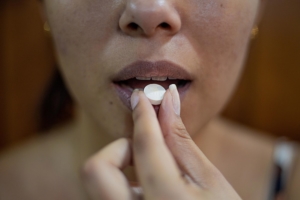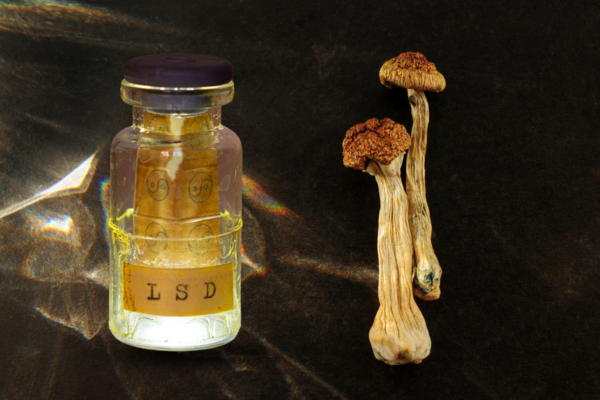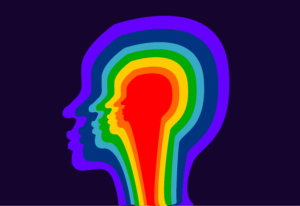
When you think of how psychedelics can help humanity, your first thought probably isn’t a possible cure for cancer. But you’d be surprised at that possibility, and many more.
While researchers back in the 1950s and 1960s identified the use of psilocybin, ayahuasca, and other psychedelics to treat addiction, it turns out this is just the tip of the iceberg.
Psychedelic compounds have since shown enormous potential in addressing a variety of unmet medical needs from glaucoma to obesity and organ transplantation. Here are five ways psychedelics can help humanity, through medical and therapeutic applications you may have never imagined.
DMT as Eye Disease Treatment
According to specialty pharmaceutical company PharmaDrug, N,N-Dimethyltryptamine (DMT) has the potential to treat eye diseases such as glaucoma. The company is partnering with the Terasaki Institute for Biomedical Innovation to develop a novel ocular drug delivery platform to deliver DMT and other tryptamines to treat eye conditions.
Glaucoma is a group of eye diseases that cause vision loss and blindness due to damage to the optic nerve. The disease impacts more than 2.7 million Americans over the age of 40. Current treatments require multiple daily applications and they are formulated into eye drops that have side effects such as redness and stinging. As a result, it is difficult for patients to carry out these treatments, with 80% of patients struggling with compliance.
PharmaDrug hopes to develop a novel delivery technique that can improve patient compliance and deliver DMT in a controlled and safe way that diminishes these side effects. The company’s research will also include cell-based basic research and active pharmaceutical ingredient formulation.
Psilocybin to Treat Rare Cancers
Psilocybin has proven to help cancer patients suffering from end-of-life distress, but potentially, psychedelics can help humanity treat certain cancers themselves.
While there is little research on this to date, PharmaTher has filed a provisional patent application with the United States Patent and Trademark Office related to a discovery about psilocybin’s potential to treat certain cancers. This intellectual property was purchased by Toronto-based specialty life sciences company Revive Therapeutics as part of its acquisition of PharmaTher’s entire psilocybin program in January.
The patent application relates to the use of psilocybin in the treatment of cancers such as liver carcinoma, melanoma, breast neoplasms, kidney neoplasms, and acute myeloid leukemia, all of which currently have sub-optimal or no treatment options.
Psilocybin to Curb Obesity and Eating Disorders
Obesity is a common and serious disease that affects millions of people around the world. According to the Centers for Disease Control and Prevention, in 2017 – 2018, 42.4% of Americans were obese, leading to related conditions including heart disease, stroke, type 2 diabetes, and certain types of cancer. Sadly, by 2030 almost half of all American adults will be obese.
But Canadian drug development and wellness company NeonMind Biosciences believes it has found the answer to treating this condition in psilocybin. The compound is known to activate serotonin receptors which can help a person curb their cravings, reduce their appetite and, as a result, eat less.
NeonMind Biosciences is researching the pairing of a high-dose psilocybin treatment with behavior therapy and lifestyle interventions to help patients improve their eating habits and aid weight loss. The company says its leading obesity drug candidate, NEO-001, has the potential to address gaps in the current weight management methods and treatments and can support sustainable weight loss in adults. NeonMind Biosciences is expected to initiate a proof-of-concept study for this drug candidate in obese patients in the first half of 2022.
While psilocybin has shown potential to treat over-eating, it may also provide a treatment option for patients who are suffering from other eating disorders such as anorexia nervosa and bulimia nervosa. There is currently no Food and Drug Administration (FDA) approved medical treatment for anorexia nervosa and several leading research institutes including Johns Hopkins University and the Imperial College London are recruiting patients suffering from the condition for trials testing the efficacy of treating anorexia nervosa with psilocybin.
Ketamine and Treatment-Resistant Depression
With the pandemic putting pressure on mental health care systems around the world, it has never been more important to pursue alternative mental health therapies. Another innovation for how psychedelics can help humanity is the use of ketamine for treatment-resistant depression.
While most patients with major depressive disorder respond to anti-depression treatments, anywhere from 10 to 30% of patients do not improve which can lead to poor quality of life, suicidal ideation and attempts, and a high relapse rate. But research shows that ketamine can result in significant clinical improvements in depressive symptoms within hours of administration and that it can also be effective in reducing suicidality.
Many drug development companies are exploring ketamine’s potential in addressing treatment-resistant depression including PharmaTher, which hopes to administer ketamine for mental health disorders through its propriety microneedle patch technology. New Zealand-based company Douglas Pharmaceuticals is developing an oral delivery method for the drug which a recent Phase 2 study showed was effective in providing rapid relief from depressive symptoms for the majority of participants with treatment-resistant depression.
DMT for Safer Organ Transplants
According to the United States Organ Procurement and Transplantation Network, about 107,000 Americans are on the waiting list for solid organ transplants. Sadly, ischemia-reperfusion injury (IRI) remains a common challenge for patients undergoing these surgeries.
IRI occurs when organ tissue is damaged after a period without oxygen when the blood supply returns. It can occur in a wide range of organs including the heart, lung, kidney, gut, and brain, and can involve not only the ischaemic organ itself but can cause damage to other organs and can potentially lead to multi-organ failure and death.
Current strategies to avoid or reduce injury from ischemia include ischemic preconditioning, ischemic post-conditioning, and machine perfusion, however, these strategies are expensive, technically challenging, and only partially effective at preventing or treating organ dysfunction.
However, DMT shows promise in preventing the occurrence of IRI. In April, PharmaDrug announced that its wholly-owned subsidiary Sairiyo Therapeutics had been granted FDA orphan drug designation for the use of DMT in preventing IRI in patients undergoing solid organ transplantation, which includes the liver, kidney, heart, and lung. The company says DMT’s anti-inflammatory protective effects may provide a better way to reduce the damage caused by IRI during organ transplants.
With the most commonly transplanted organs in the United States being the kidney, liver, heart, lung, pancreas, and intestines, this discovery has the potential to greatly improve the survival rates of these procedures.





